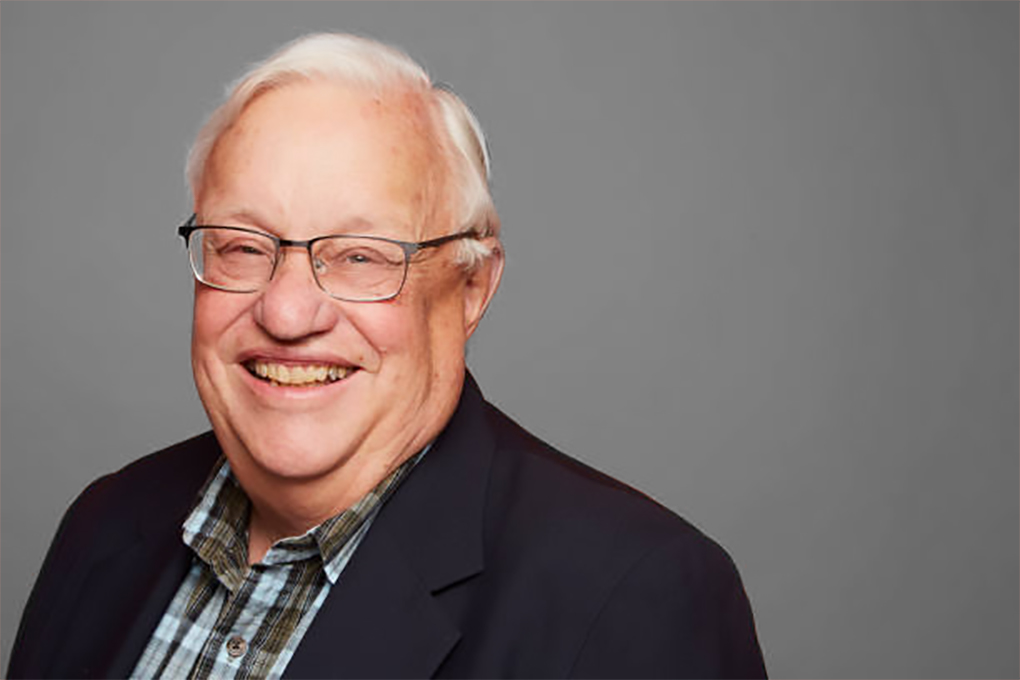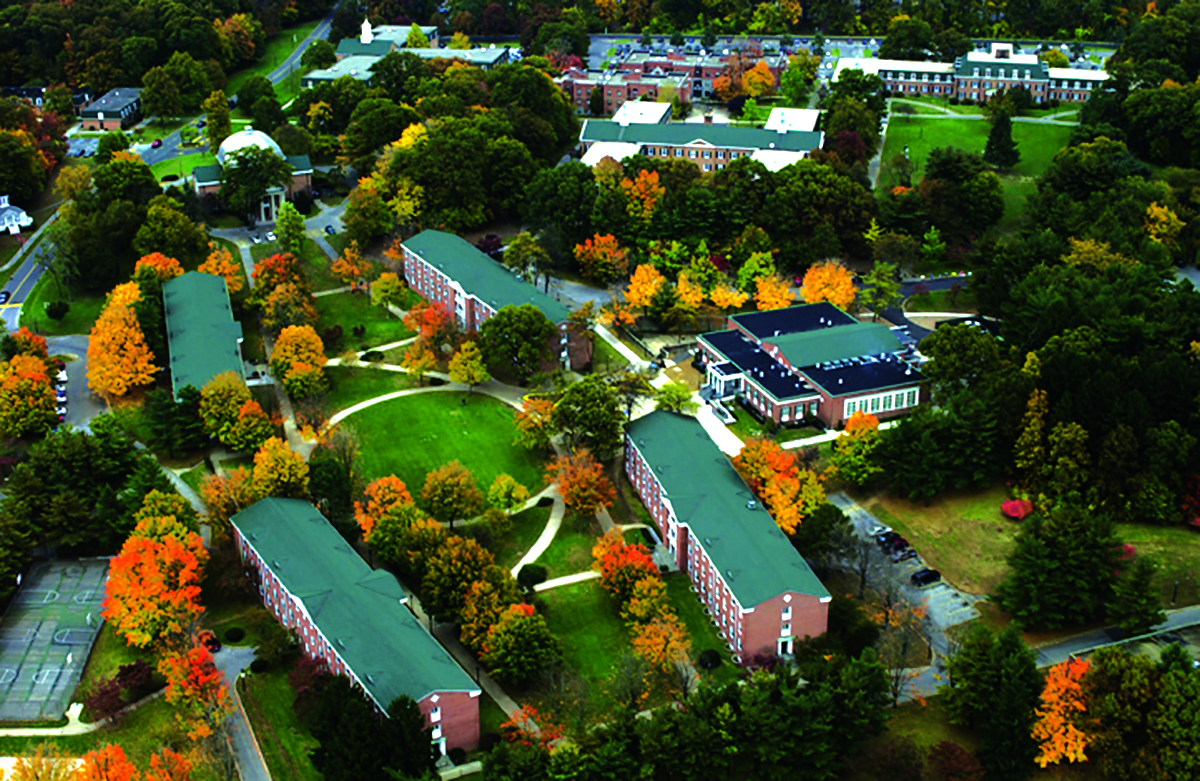“All we can do is just try to teach. Try to get people to think. Try to get people to have that a-ha moment without browbeating them. I look at the School, and it is truly a place to start those discussions.” – Tweed Roosevelt, great-grandson of former United States President Theodore Roosevelt.
Sagamore Hill, the National Historic Site and former home of Theodore Roosevelt, sits just 15 minutes northeast from the campus of Long Island University, on Cove Neck in Oyster Bay, N.Y. It was the Summer White House of the former president, a location that has been pristinely preserved by the National Parks Service.
That connection – along with his own to the area as a student at Millbrook School outside the city and his time as a graduate student at Columbia University – inspired Tweed Roosevelt (TR’s great-grandson) to put down roots in the academic sphere at LIU. The proximity to Sagamore Hill and the university’s leadership led him to initially create something special in TR’s honor – the Theodore Roosevelt Institute.
“I looked at Harvard [which Tweed attended as an undergrad] and Columbia, places with connections to TR,” he said. “And I felt that it would be buried in a big institution like that. I wanted to go to a smaller institution where it could play a bigger role, have more resources, have a bigger effect. LIU is ideally located for this because it’s right next to Sagamore Hill, which is sort of epicenter of TR’ism.”
A focus on the 26th President certainly would leave no shortage of discussion topics or debates – and inspiration for students looking to make their mark in politics and public policy. TR’s legacy is cemented as one of four on Mount Rushmore, thanks to impressive array of talents: conservationist, writer, champion of the progressive moment, expert marksman, diplomat and most of all global leader and icon.
The development of the Institute in his name was quite the tribute. But Tweed Roosevelt had a further vision. What if it were expanded to include two other incredibly influential family members – Franklin Delano Roosevelt and Eleanor Roosevelt – in one overarching school? Their amazing work and their visionary beliefs could set the tone for future generations of students, looking at their history and influence from all sides of the political lens.
“The beacons are the three Roosevelts because they cover the waterfront,” Tweed said. “We have a Republican and a Democrat, or you could argue that TR really was a Democrat, but he was a Republican. We have FDR, of course, a Democrat. And then we have an Eleanor, whose focus was human rights and fairness.”
Dr. Kimberly Cline, president of LIU, liked the idea. And so was born The Roosevelt School – focused on all three – a new educational avenue that would prepare the next generation in “international relations, diplomacy, leadership, service, and policy making at multinational corporations, foundations, think-tanks, non-profit organizations and governmental agencies around the globe.”
“A lot of colleges and universities have an embedded infrastructure. It’s hard to change things,” Tweed said. “I thought that this would be an excellent place because this was a university going places. It had the opportunity to really make a splash.”
The Roosevelt School has launched and will officially open to students this fall with a focus on making them more well informed and engaged. It will encompass the Theodore Roosevelt Institute, its Global Service Institute and the Steven Hornstein Center for Policy, Polling, and Analysis. Students will be able to pursue a bachelor’s degree in International Relations and Diplomacy, or a 5-year bachelor’s degree and Master of Business Administration. They will receive further training as interns at places such as the United Nations, Red Cross and government agencies.

To learn more about the mission of the School, its goals and the state of politics in the U.S., University Business sat down for a wide-ranging and engaging conversation with Tweed Roosevelt, a professor, historian, speaker, philanthropist and business leader. He is also a founder and president of the Society of Presidential Descendants, whose members have direct lineage to U.S. presidents.
What will be the main areas of focus and goals for the Roosevelt School?
We’re going to train students for a number of different sort of outcomes. One is, we provide to the general college student education on civics and government. Another aspect is to try to re-institute civics education into the curriculums at the primary and secondary education level by training teachers to do that.
One of the problems is that for a generation, we have not been teaching our younger students enough about what this country is and how it works and what they need to be good citizens. It shouldn’t surprise us that we get large numbers of people who have no idea how the government works, and therefore, what a good citizen needs to do. Whichever side of the fence they’re on, they become subject to demagogues. We have to help that at all levels. We are beginning to provide some education in that area.
As to our students in the Roosevelt School and also in its graduate programs, the places they’ll be getting jobs is in government, whether they’re running for politics or whether they’re policy people. That’s one crowd. Another crowd is NGOs (non-governmental organizations). We’re in the center of NGO land in New York. We would help them prepare for that. On the business side, students going into international business, we provide various tools that will help them when they become business people and work internationally.
Where are you in terms of faculty for the School, when students will start and the direction it is heading?
We’re in the process of hiring faculty and designing programs, courses and so on and getting them in place. We will start with our first class in September. It’ll be 30 to 50 people.
A school develops over time its expertise. That comes from the beliefs of the founders like me, in conjunction with who we hire and how we move forward and where we go. And the changing attitudes and environment out there that we’re trying to serve. TR’s relevance to the world today is quite different than his relevance when I was in college, when the world was different and we were worried about Vietnam. The lessons to be learned from our icons depends to a large extent on the current situation of the world. Schools like this change over time. We want our students to have a grounding in the basics. But when you start talking about upper-level courses or graduate courses, those will change over time.
The political landscape, the last election cycle was rocky. There is a lot of divide in the country. What are your feelings on the current state of politics?
We have a very messy system of governments here. (Paraphrasing Winston Churchill, who said ‘America will do the right thing after exhausting all other options’) America always gets it right, but only after it’s tried everything else. There’s a lot of truth to that. We’re a good people, the vast majority of us do good things. We’re hoping to turn out better citizens. [The School] is nonpartisan. That doesn’t mean we don’t address issues. We hope we will provide platforms for different people with different ideas, to air them and discuss them and argue over them and hopefully not beat each other up over them.”
What would be a good example of a topic where there is considerable divide and where the School can play in role in having positive discussions?
Let’s talk about environment. Environmental issues are by their very nature contentious. There’s no clear line. It’s a negotiation all the time. There are people with all kinds of different interests. And they need to be balanced with environmentalism. We need to get people conscious about environmentalism, but most people don’t know the difference between the National Parks and the National Forests. One is pristine wilderness, keep it the way it was. And that’s the Parks. And the other is we have these vast natural resources, let’s use them in the best way possible, and the most renewable way possible. Let’s not clear cut our lumber from everywhere. Let’s make sure as we’re cutting lumber, we’re planting more lumber. And then you have the debates of whether there should be hunting on National Forest land, whether there should be grazing of animals, and so on.
Those are not clear cut. They need to be negotiated. It needs to be a public debate, and then we decide what’s best. We can and will make mistakes. But the overall purpose is to provide a marketplace for argument, for discussion about issues, and to educate students and the public about what the issues are, and then let the political arena make the balances as they should.

How can the Roosevelt School help to bridge those discussion gaps?
We’re particularly well-placed for this. We are particularly grounded in some basic concepts that come from our beacons [the three Roosevelts]. That’s what this school is partially about. It’s about helping in the process of getting people to rethink and be educated and provide platforms for people to discuss this kind of thing. One is we train the next generation of people who have a public policy and an international affairs background. And the other is to provide an educational platform or school where these issues can be discussed by people who have different view, where solutions can be found or partially found, and then injected into the public sphere and into Capitol Hill and the White House, to the extent that we can do that sort of thing.
What does it mean to you to launch the School and have it bear the Roosevelt name?
I think it’s great but I don’t really care too much about the name. It’s the ideas of these three Roosevelts – the basic fundamental ideas they had are worth reminding people of, and educating people around helping people do the right thing. They were three very different people with very different interests. But all three of them were very much focused on doing what they thought was the public good. And mostly, they were right.
All three of them believed that it was by education. TR, for example, was a great believer that if he wanted to get a big thing done, let’s say conservation, he had to convince the people that they wanted to get it done. And then the people could browbeat Congress into doing the right thing. That’s an educational process. Eleanor and FDR believed the same thing. If you thought you were right, that was good. But what you needed to do was convince the people you were right, and convince them to support you. Not because you’re a Roosevelt, but because you have an idea that they agreed with.





